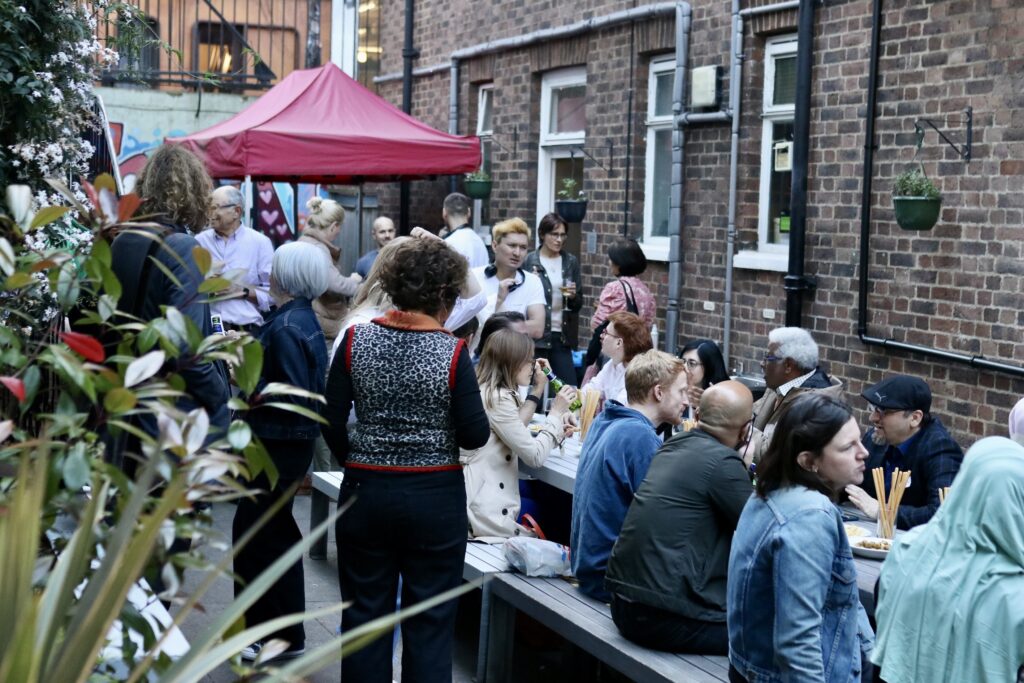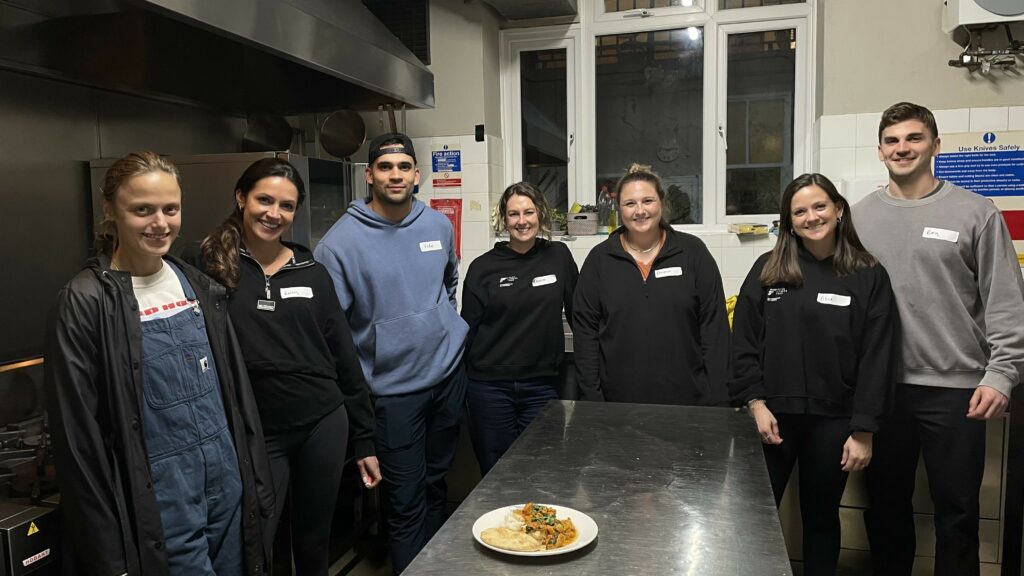The Science of Altruism: Why Doing Good Makes Us Feel Good

This summer, our ‘Bene Meals’ initiative is more than just a menu; it’s a movement towards integrating joy, health, and social responsibility into every meal, celebrating food and community, and supporting those who need it most via the London Soup Kitchen.
We all know that giving back makes us feel good, but we wanted to find out exactly why that is. We spoke with Bianca Armitage, Neuroscientist and Wellbeing Coach, to find out exactly what’s going on in our brains when we help others.
Altruism Defined
Firstly, what do we mean by the term altruism? Altruism refers to the selfless concern for the well-being of others, often involving acts that prioritise others’ interests or welfare. It manifests in behaviours that range from simple acts of kindness to more significant sacrifices, motivated by empathy and a desire to help without expecting anything in return.
The Science Behind Altruism
Engaging in altruistic behaviour not only makes us feel warm and happy inside, but it also gives us a little bit of a high. Our brains have two major systems: pro-social behaviour and defensive behaviour. Pro-social behaviour drives us to help others and contribute to society, while defensive behaviour kicks in when we’re stressed, leading us to retreat and avoid people. By engaging more in pro-social activities, we can stunt our defensive behaviours and activate a flood of happy brain chemicals.
When we do something altruistic, our brains release serotonin, dopamine, endorphins, and oxytocin—the love hormone. These chemicals promote pro-social circuits, making us feel good and encouraging us to do more good. As we engage more with our pro-social network, we tend to feel less stressed and negative. The long-term emotional benefit is increased resilience to stress, a generally happier outlook, and a tendency to lean towards positivity even in the face of adversity.
Engaging in good deeds creates a positive cycle. Our brain is an association machine; the more we do good things and feel good about them, the more we want to keep doing them, reinforcing this behaviour. This comes down to the actual circuitry in our brains, which tells us to keep repeating actions that make us feel good.
Reinforcing Good Deeds: The Virtuous Cycle of Altruism
The benefits of altruism extend beyond personal happiness. When we help others, they are more likely to engage in similar behaviours, creating a virtuous cycle of kindness. This positive feedback loop is reinforced by brain chemistry, as others who experience the benefits of altruism are also motivated to continue the cycle.
Altruism enhances social connections and relationships, primarily due to the release of oxytocin. This hormone is crucial for bonding and connection. When we engage in altruistic behaviour and release more oxytocin, we become more capable of deep bonding, both emotionally and chemically.
Interestingly, part of what makes us feel good when performing altruistic acts is related to the gratefulness network in our brains. This isn’t about feeling grateful ourselves, but rather about receiving gratitude from others. When we receive positive responses from others for our good deeds, it lights up the gratefulness areas in our brains, making us feel significantly better than simply counting our blessings.
The brain areas that light up when we think about or perform altruistic acts are the same ones that activate when we think about food we enjoy. Boosting these happy circuits creates an overall beneficial virtuous cycle. Good sleep, proper nutrition, and optimal health reduce stress, making us more pro-social and more inclined to engage in altruistic behaviours. This cycle of feeling better and wanting to do more good perpetuates itself, leading to an ever-increasing sense of well-being and social harmony.
Altruism’s Payoff: Good for Us, Good for All
In conclusion, altruism isn’t just good for others; it’s profoundly beneficial for us too. By fostering a habit of helping others, we can enhance our happiness, reduce stress, and build stronger social connections. The science of altruism shows that good deeds are a win-win for everyone involved.

Join us in feeling good, doing good, and looking good with our ‘Bene Meals’, available throughout the summer, featuring an array of dishes inspired by the Mediterranean diet and Italian summer flavours. Explore this exclusive menu and opportunities to participate in our community giving programme here.
Get £50 off a 5-day trial with code: BLOG50. Start your trial here!
Useful references
- Oxytocin and the Neurobiology of Prosocial Behavior
- Neural circuits regulating prosocial behaviours
- Neural correlates of gratitude
- Exploring neural mechanisms of the health benefits of gratitude in women: A randomized controlled trial
- Human fronto-mesolimbic networks guide decisions about charitable donation